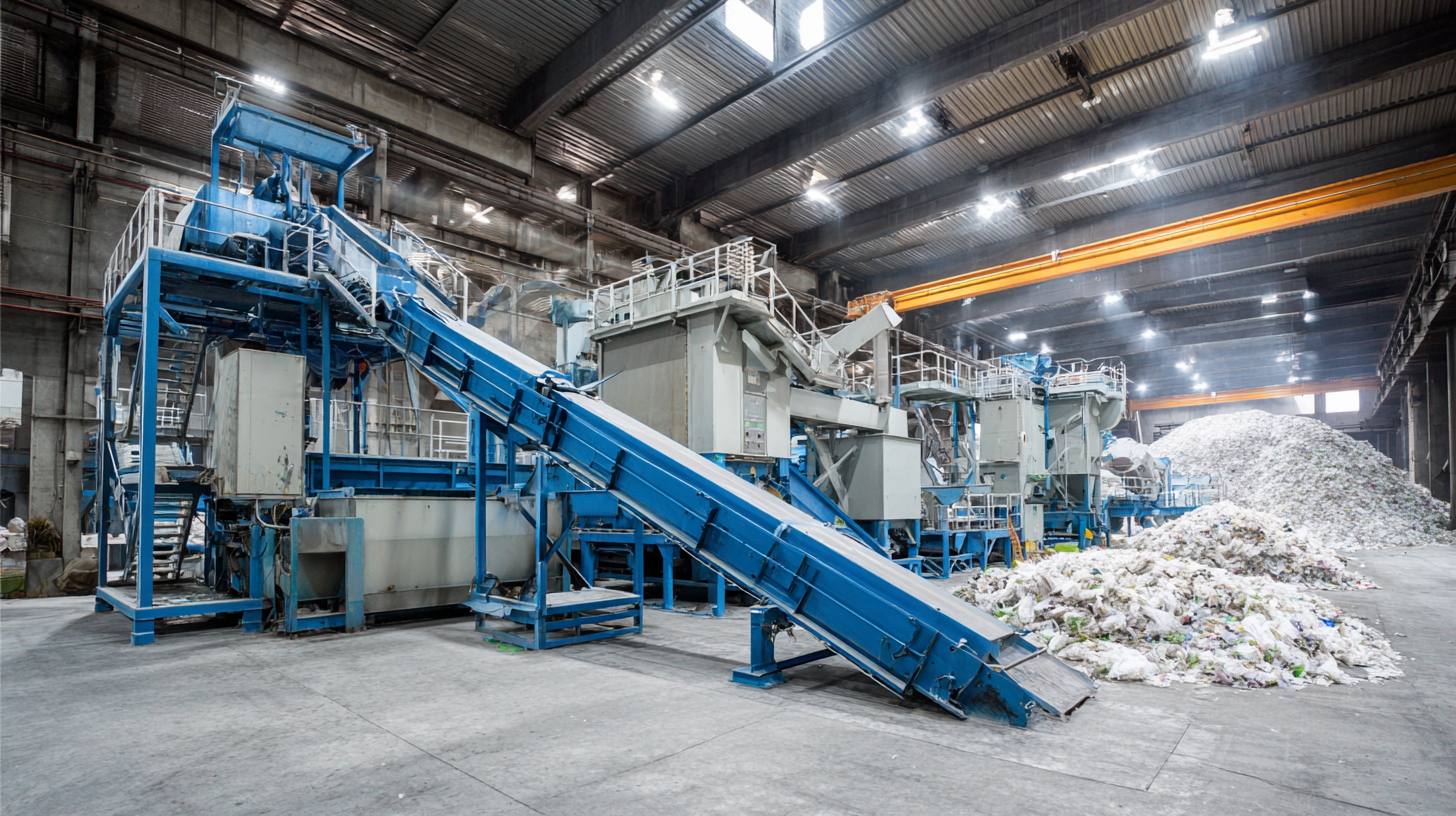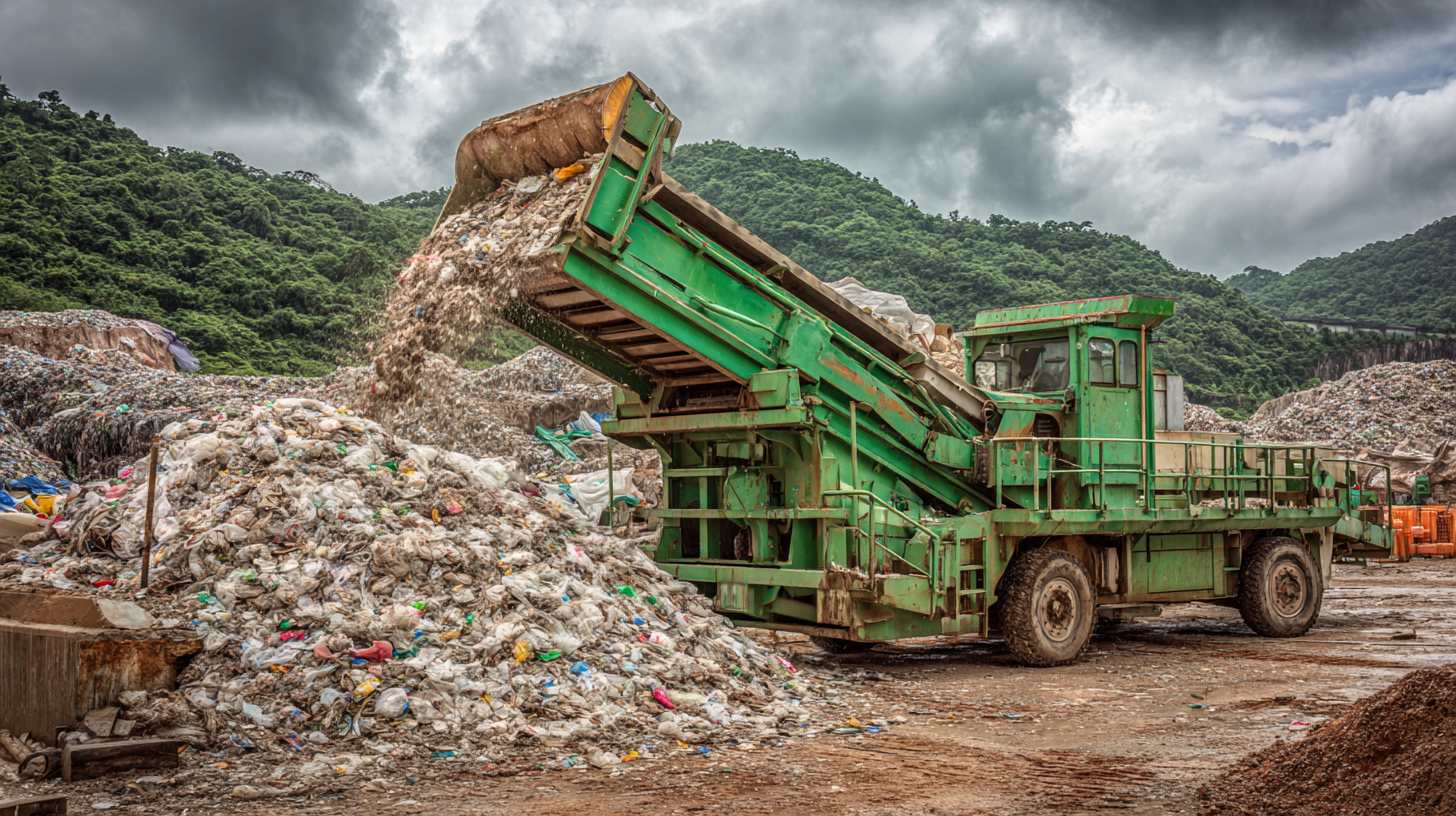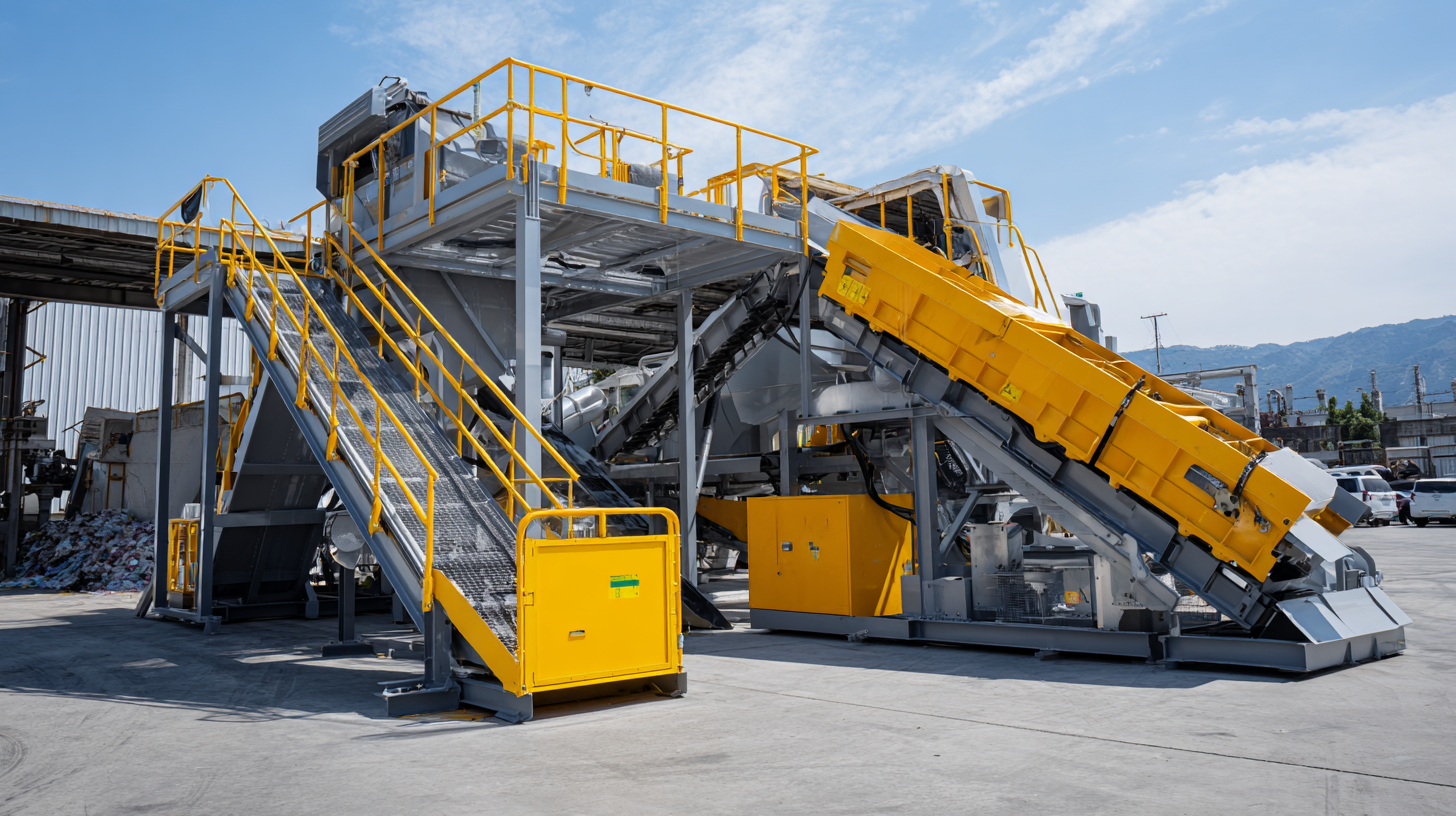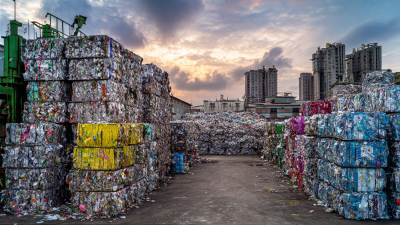In an era where environmental sustainability is paramount, innovative solutions are essential to tackle the growing issue of plastic waste. The Plastic Crusher Machine stands at the forefront of this revolution, transforming the way we approach waste management. By efficiently reducing plastic waste into manageable pieces, this advanced technology not only facilitates easier recycling but also contributes significantly to resource recovery. As municipalities and businesses alike seek to improve their recycling rates, the integration of the Plastic Crusher Machine presents a compelling opportunity to streamline operations and minimize landfill contributions.

This introduction explores the pivotal role of this machine in reshaping recycling practices, highlighting its potential to enhance efficiency, reduce costs, and promote a circular economy. From its technical specifications to its real-world applications, the Plastic Crusher Machine is redefining the landscape of waste management and heralding a new era of sustainable practices.
The growing concerns about plastic waste have spurred innovative solutions in waste management, with plastic crusher machines at the forefront of this revolution. These machines play a significant role in waste reduction strategies by efficiently shredding plastic materials into manageable sizes. This process not only optimizes recycling operations but also ensures that more plastic is diverted from landfills, reducing the environmental footprint of waste disposal.
By streamlining the recycling process, plastic crusher machines enhance the feasibility of large-scale recycling efforts. They prepare plastics for reprocessing, making it easier for recycling facilities to convert waste into reusable materials. Moreover, these machines facilitate the sorting and separation of different types of plastics, further improving the overall efficiency and effectiveness of recycling programs. As communities increasingly adopt these technologies, the impact on reducing plastic waste becomes increasingly evident, paving the way for a more sustainable future.
 Modern plastic crusher technology has introduced several innovative features that significantly enhance waste management processes. One of the most notable advancements is the integration of smart sensors that optimize the crushing process. These sensors can detect the type and thickness of plastic materials, allowing the machine to adjust its settings automatically for maximum efficiency. This not only speeds up the processing time but also minimizes energy consumption, making it an eco-friendly solution for plastic recycling.
Modern plastic crusher technology has introduced several innovative features that significantly enhance waste management processes. One of the most notable advancements is the integration of smart sensors that optimize the crushing process. These sensors can detect the type and thickness of plastic materials, allowing the machine to adjust its settings automatically for maximum efficiency. This not only speeds up the processing time but also minimizes energy consumption, making it an eco-friendly solution for plastic recycling.
Additionally, contemporary plastic crushers are equipped with advanced shredding mechanisms that can handle a wider variety of materials, including multi-layered plastics that were previously challenging to recycle. These machines often feature modular designs that enable easy maintenance and component replacements, reducing downtime and operational costs. Furthermore, some models are designed with noise reduction technology, making them suitable for use in urban environments without causing disturbances. By incorporating these cutting-edge features, modern plastic crusher machines play a crucial role in revolutionizing recycling and promoting sustainable waste management practices.
The advent of automation in recycling processes, particularly through the use of plastic crusher machines, has significantly enhanced efficiency in waste management. These machines automate the crushing of plastic waste, reducing the need for manual labor and thereby minimizing human error and safety risks. By streamlining the process, they can quickly and effectively reduce large volumes of plastic into manageable pieces, facilitating further recycling operations. This automation allows recycling facilities to process more materials in less time, ultimately increasing the overall throughput of recyclable plastics.
Furthermore, the implementation of automated systems not only optimizes the physical handling of materials but also improves sorting and quality control. Advanced technologies, such as sensors and software algorithms, enable these machines to identify different types of plastics and sort them accordingly before crushing. This precision ensures that only the most suitable materials for recycling are processed, leading to higher quality recycled products. As automation continues to evolve, it promises to reshape the recycling landscape, making waste management more efficient and sustainable in the face of growing plastic pollution challenges.
| Parameter | Value |
|---|---|
| Daily Processing Capacity | 2,000 kg |
| Energy Consumption | 5 kWh per ton |
| Recycling Rate | 85% |
| Cost Savings per Year | $150,000 |
| Carbon Footprint Reduction | 300 tons CO2 |
| Automation Level | High (90%) |
| Operator Efficiency Improvement | 40% |
| Installation Cost | $200,000 |
The need for efficient waste management has led to the innovation of various plastic crusher models designed to streamline the recycling process. A recent industry report from MarketsandMarkets highlights that the plastic recycling market is expected to reach $37.9 billion by 2027, indicating a substantial growth in the demand for technologies that can effectively aid in this recycling effort. Key players in the market are now focusing on developing crushers that enhance throughput while ensuring the material is processed with minimal energy consumption.
When comparing different plastic crusher models, factors such as capacity, energy efficiency, and ease of use emerge as critical criteria. For instance, high-capacity models like the ELDAN Recycling 122T can process up to 2,000 kilograms of plastic per hour, while smaller models might target more localized operations. A report from Plastic News also cited that the installation of advanced crushing systems can reduce operational costs by up to 25%, making them an attractive choice for recycling facilities aiming to maximize profitability while supporting sustainable practices.
Tips: When selecting a plastic crusher, don’t overlook the importance of energy efficiency. Running a machine that minimizes energy consumption not only reduces costs but also lessens the environmental impact. Additionally, consider the support and maintenance options offered by manufacturers; reliable customer service can significantly reduce downtime and enhance operational efficiency.
The rise of intelligent recycling solutions marks a significant turning point in waste management. As cities and industries face escalating waste challenges, the integration of advanced technologies like artificial intelligence (AI) and the Internet of Things (IoT) into recycling processes is becoming increasingly vital. AI-driven innovations are enhancing plastic sorting and processing, leading to more effective recycling streams. This transformative approach not only boosts efficiency but also mitigates the environmental impact associated with plastic waste.

Moreover, the development of smart waste management systems is positioning urban environments for sustainable growth. As urbanization accelerates, these systems leverage deep learning and predictive analytics to optimize waste collection and sorting processes. The application of such technologies enables cities to adapt to rising waste levels while promoting recycling initiatives that are both economically viable and environmentally beneficial. This convergence of technology and sustainability is paving the way for a future where intelligent waste management is a standard practice across industries, ultimately fostering a circular economy.






